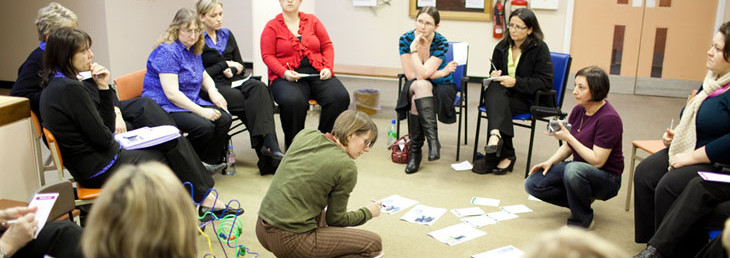Co-innovation for a more humanized healthcare

Despite the cultural clash caused by decades of the current most commonly stablished kind of relationship between doctors and patients, an increasing number of not just patients but health professionals too are realizing that engaging the patient voice can be a powerful tool to inspire and shape new solutions in health care.
As stated by The Society for Participatory Medicine, a non-for-profit organization promoting “a movement in which networked patients shift from being mere passengers to responsible drivers of their health”, co-creation with patients it’s just one element with almost no chance to become true if not thanks to a powerful trend towards the humanization of medicine.
Which make us wonder why in the first place medicine or healthcare became dehumanized. In any case, as it is happening in so many other fields and markets, co-creation, co-innovation and a more collaborative environment between players that barely talked and related to each other, seem once more come to rescue a model of “things as usual” that is starting to show its many flaws.
Manners and mindsets shaped for decades or even centuries of practice are difficult to change from one day to the next. As we wrote in our last post, participatory medicine is still a minority tendency within medicine. But nevertheless, a growing number of cases and initiatives are starting to show the way for a more collaborative environment in areas within healthcare as diverse as treatment development, especially those related to the so called “beyond the pill” strategies; assistive technologies; community healthcare; patient journey/hospital processes; or even the creation of innovative layouts for healthcare facilities.
The top pharmaceutical company Merck, for instance, is working to develop the concept of “patient input forums”, an initiative that brings in volunteer patients who suffer from health conditions relevant to Merck’s research. This is not a traditional “focus group” where the product or service is tested once developed or almost developed, but a forum in which Merck scientists can better understand diseases from the patient’s perspective by asking questions about care treatment and process, and identify areas of unmet need. In their own words, this way they can “see firsthand that a patient isn’t a disease with a body attached but a life into which a disease has intruded”.
Living labs applied to healthcare
Genetic Testing’s company Recombine is pioneering in applying living lab approaches to genomics. Its main product is a genetic test that allows couples that want to have children to know the risk of inheriting a monogenic disease. The test probed to be a big step forward in genetic testing, but instead of launching it directly to the market the company decided to use a living lab. Why? The reality of the biotechnology market is that it is full of great patents that had little commercial success.
Recombine decided to apply the principles of lean start up and get out to talk with prospect customers and listen to them. The living lab methodology allowed them to go beyond the quality of the product and test and innovate in some others important issues as technical working in real environment, logistic and administrative processes, or patient acceptance and reactions. All different processes were ethnographically recorded using methods as, for instance, patient field diaries. Results included finding out new uses for Recombine test, identifying and solving some market resistances, rethinking the market niche, and focusing in main claims and commercial arguments for European clinics.
The case is widely explained in here:
Gaining market acceptance in biotechnology using a living lab: real case
You may also check:
